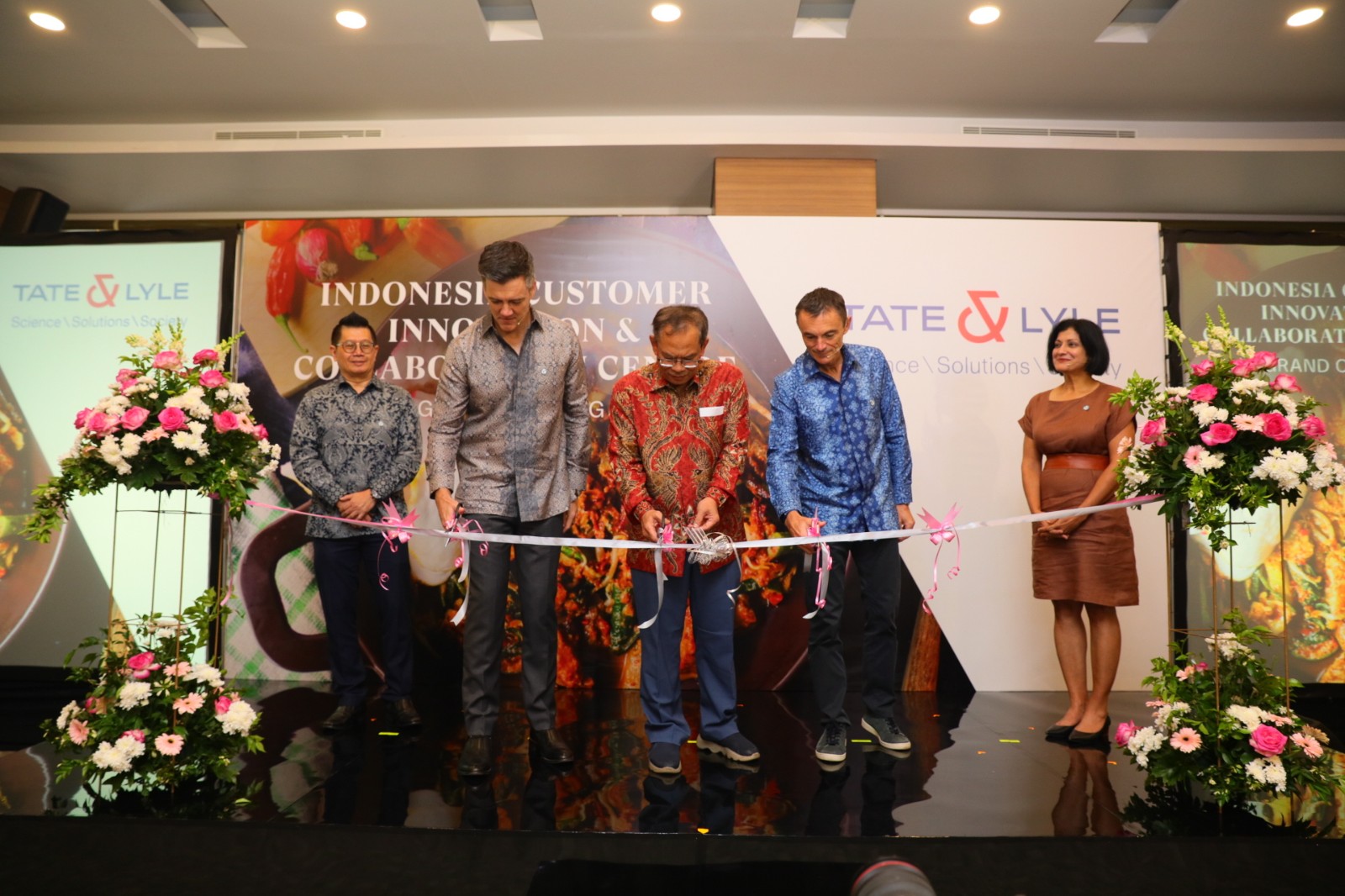Tate & Lyle PLC has inaugurated its Customer Innovation and Collaboration Centre in Jakarta, Indonesia. The opening marks an important milestone in the ingredient company’s expansion in the Asia Pacific region. It has been supplying to Indonesia for over a decade.
With the new centre, a combined office and laboratory, the company aims to support healthy living in Indonesia through food science and ingredient solution innovation. The launch held on 27 June was attended by senior Tate & Lyle leadership, food and beverage customers, and other industry, nutrition and business leaders.
At the new centre located in Central Jakarta, Tate & Lyle customers will create new or reformulated, on-trend food and drink products that meet local needs and preferences. Tate & Lyle’s local technical, commercial and sales experts based at the new centre, and the customers they partner with, will also continue to be supported by its global specialist network of nutrition, regulation, and application experts.

From left to right: Julistio Gunawan, Tate & Lyle's Senior Sales Manager in Indonesia; Andrew Taylor, Tate & Lyle's President of Asia, Middle East, Africa and Latin America; Iwan Suryana, Expert Staff of Indonesia's Ministry of Investment; Nick Hampton, Tate & Lyle's Chief Executive; and Kavita Karnik, Tate & Lyle's Global Head of Nutrition, Regulatory and Scientific Affairs. (Source: Tate & Lyle)
Nick Hampton, Tate & Lyle Chief Executive, who opened the new centre at the inauguration event, said: “As a global company that has been operating since 1859, Tate & Lyle is an expert in helping food and drink producers to make tasty food healthier and healthy food tastier. That’s why we’re excited to open our Customer Innovation and Collaboration Centre in Indonesia, one of a 17-strong global network of labs. From our new base in Central Jakarta, our local team will help food and drink producers to tap into our leading ingredient portfolio and unmatched ability to formulate across the intersection of sweetening, mouthfeel and fortification, co-creating food and drink products with less sugar, fat and calories and with the added nutritional benefits of fibre and plant protein.”
Hampton continued: “This is Tate & Lyle’s latest investment in Asia Pacific, following our acquisition of a leading stevia business in China in 2020, a tapioca modified food starch manufacturer in Thailand in 2021, and a China-based global leader in prebiotic fibres in 2022.”
At least 13 percent of the Indonesian population suffers from diabetes, with the potential for a significant increase each year.* Tate & Lyle’s commitment to enabling healthy eating is aligned with the efforts of the Indonesian Ministry of Health in preventing diabetes.
Also present at the launch event was Expert Staff of Macroeconomics of the Ministry of Investment/Investment Coordinating Board of the Republic of Indonesia (BKPM), Iwan Suryana. “The food and beverage industry in Indonesia will continue to grow. Food and drink are not only needed for people to live, but also for them to be healthy,” Suryana explained. “We hope that Tate & Lyle can contribute to our country, especially with regards to the food and beverage produced by the industry, which can produce healthy food for the community, so we support the presence of Tate & Lyle. We really hope that Tate & Lyle is successful in Indonesia,” added Suryana.
Head of Nutrition, Regulatory, and Scientific Affairs at Tate & Lyle, Kavita Karnik, M.Med. Sci., PhD, said: “There is a substantial body of scientific evidence that shows that low and no calorie sweeteners can help people reduce calorie and sugar intake, and manage weight when used as part of a balanced diet and healthy lifestyle. We also use our portfolio of dietary fibres to not only reduce sugar, which they can do very effectively, but to provide additional health benefits such as help with maintaining blood glucose and keeping us feeling fuller for longer, which can help with weight management. Emerging science, including the multi-national research collaborations we establish and drive, shows dietary fibre can provide wider benefits, from brain health to metabolic health and reduced risk of non-communicable diseases such as type 2 diabetes, which is why we predict it will be a growing local trend in Indonesia.”
*International Diabetes Federation

 iConnectHub
iConnectHub
 Login/Register
Login/Register Supplier Login
Supplier Login



























